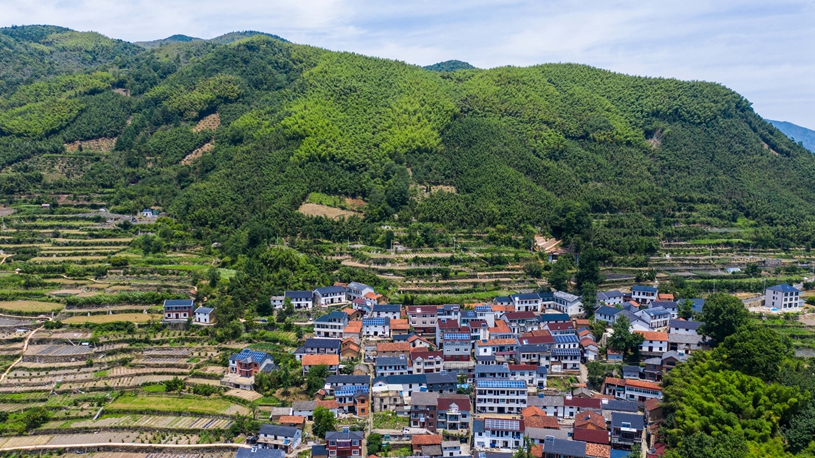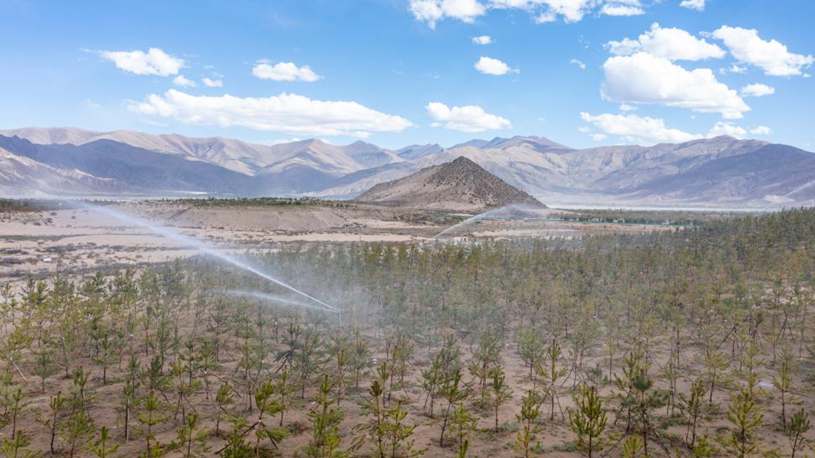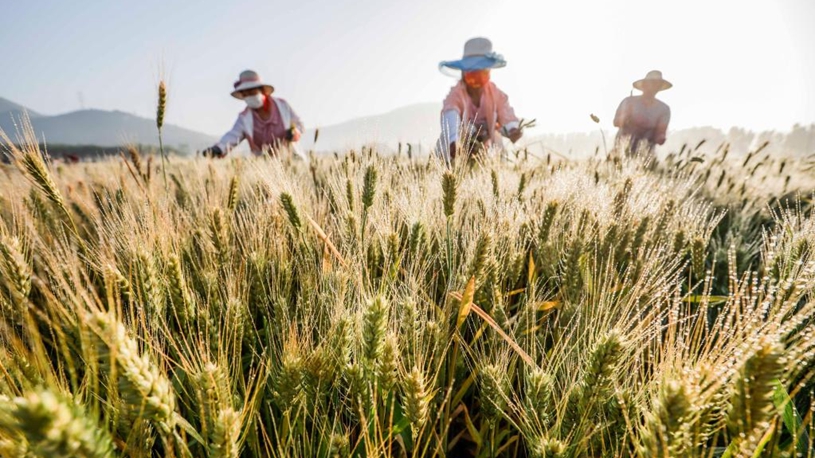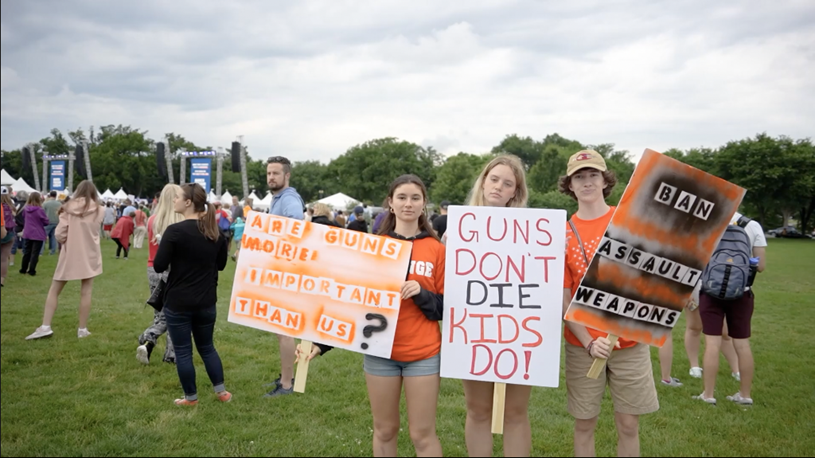
People visit Sneaker Con Los Angels, a business show of collectable sneaker industry, at Anaheim Convention Center, California, the United States, on May 21, 2022. (Xinhua/Huang Heng)
"It's concerning that cases in the West and the South are still rising," former COVID White House Senior Advisor Dr. Tom Inglesby said. "Hospitalizations, nationally, are still rising," he added.
by Peter Mertz
DENVER, June 13 (Xinhua) -- Few residents in Colorado's capital city Denver were wearing face masks indoors over the weekend, despite the requirement of the U.S. Centers for Disease Control and Prevention (CDC) Friday that moved Denver County to "Level Red" for community transmission due to a rapid rise of COVID-19 cases.
"It's over, I'm not wearing another mask, not ever," Jim Turner told Xinhua Monday. "It's been going on too long. I don't care any more."
Turner talked to Xinhua after leaving a Walmart north of the city where only a handful of customers had adopted the new guidelines, underscoring many American's impatience with restrictions surrounding the global pandemic that lasted over two years and had claimed 1.1 million U.S. lives as of Monday, according to New York Times data.
"While case rates in our community are higher than they have been in recent months, they are far from where they were during the Omicron surge," the Denver Department of Public Health and Environment said Friday. "Rates of hospitalization continue to be low, especially among people who are vaccinated and our hospital capacity is not in jeopardy," it added.
Last Friday, the Centennial State capital joined three Colorado counties already on "Red Level" alert and told residents to wear masks indoors in public places, to "get tested if you show symptoms," and stay up to date with COVID-19 vaccines.
Although many individuals were maskless indoors over the weekend, downtown Denver bars and restaurants were complying, posted "masks required" on their front doors, and were turning away patrons who refused to mask up. Many were offering masks at their front doors to allow patrons to enter, whereby the face masks were then removed after people were seated.
Colorado had 43,028 cases reported between May 28 and June 10, according to New York Times research. The positivity rate in Denver was 12.2 percent as of last Thursday.
A two-week study released Friday by the CDC showed that COVID-19 cases, but not deaths, are on the rise in Utah, New Mexico, Arizona and California.
"It's concerning that cases in the West and the South are still rising," former COVID White House Senior Advisor Dr. Tom Inglesby told KABC. "Hospitalizations, nationally, are still rising," he added.
Inglesby, with the Johns Hopkins Bloomberg School of Public Health, said officials are tracking the upward trends in California. "In the fall and the winter, we will possibly see new surges that may be more serious than the ones that we're in now," he said.
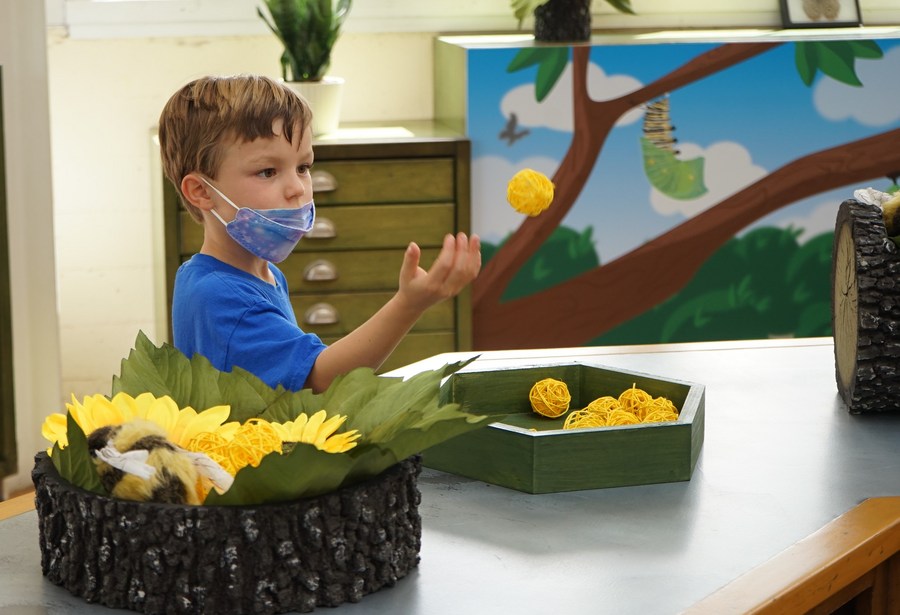
A child visits the Kidspace Children's Museum in Los Angeles, California, the United States, April 22, 2022. (Photo by Zeng Hui/Xinhua)
In Southern California, COVID-19 cases in Los Angeles County had jumped to 5,050 cases per day with neighboring Orange County at 1,240 and San Diego County at 1,624, according to the 14-day CDC data.
Health officials said if Los Angeles keeps moving toward the highest community threat level, they are prepared to re-implement universal indoor mask mandates, which could come soon.
With about one-third of the country's population not fully vaccinated and one-third of Americans not boosted, Inglesby expects to see more waves and that federal funding needs to be available to purchase new variant-specific vaccines.
"We need to be ready for future variants or surges should they occur. We can hope that they won't, but we need to prepare as if they will occur," Inglesby said, adding that "we can expect the need for more boosters in all age groups."
The newly developed Novavax vaccine is heading to the CDC where a panel will vote on its recommended use, and could be available a few weeks or months after regulators approve it, according to media reports.
North and east of Southern California, upticks in COVID-19 cases have health department officials scrambling.
The two-week CDC study showed that south of San Francisco, Santa Clara County was averaging 1,274 new cases per day, Contra Costa County had 697, and Alameda County 495 cases and in Arizona, where conservative governor Doug Ducey had recently blocked a mandate to vaccinate school children, Maricopa County, home of state capital Phoenix, was averaging 1,358 cases a day.
Last week, the Arizona Department of Health Services documented more than 14,000 new cases on Wednesday, the largest batch since the state started updating its COVID-19 dashboard on weekly basis three months ago, 12 News Phoenix reported.
With COVID-19 cases on the rise, more than half of Arizona's 15 counties are now at medium or high community levels for the virus, according to federal health officials.
The CDC classified Apache and Navajo counties in Arizona, home to large Native American populations, in the high COVID community level this week.
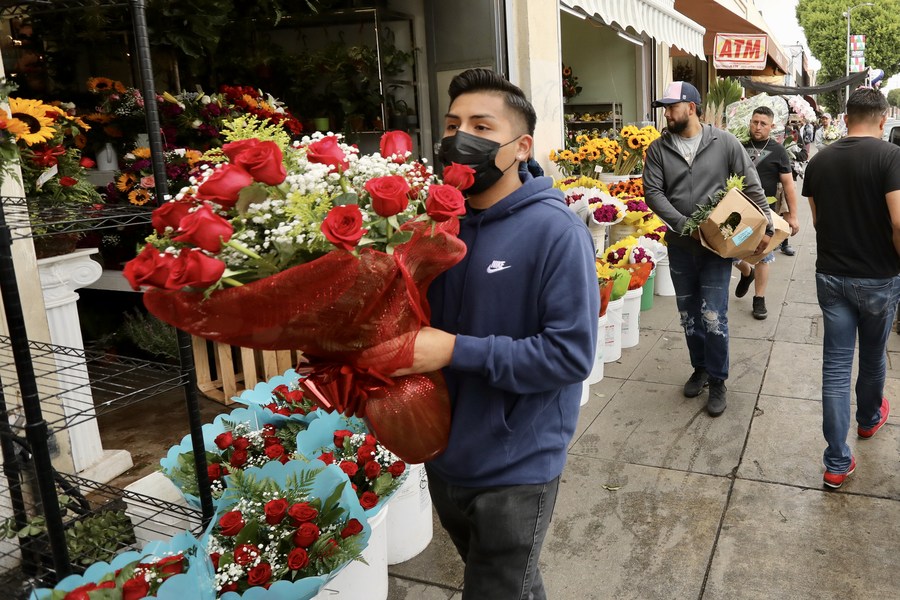
A man carrying a bunch of flowers is seen at a flower market on Mother's Day in downtown Los Angeles, the United States, on May 8, 2022. (Xinhua)
North of the Grand Canyon State, Utah Department of Health had 7,502 new COVID-19 cases over a one-week period, as well as 12 additional deaths.
Utah's seven-day average for new cases is just under 1,072 cases. The percentage of positive COVID-19 tests has continued rising since the beginning of April. As of June 3, the most recent day for which that data is available, the positivity rate stood at 22.24 percent of people tested, according to the CDC.
Health officials have noted that the confirmed cases do not represent true COVID-19 case counts, as fewer people are seeking testing, and many who are using at-home tests do not get reported to public health officials.
State data shows the majority of new cases in Utah continue to be caused by the "stealth" Omicron variant, which is believed to be more transmissible but causes less severe illness.
East of Arizona in New Mexico, Tim Keller, the mayor of the state's largest city Albuquerque, was "recovering from COVID-19 after testing positive for the virus" last week, according to KRQE News. Keller was fully vaccinated and boosted against COVID-19.
Confirmed positive COVID-19 cases have been rising over the last six weeks across New Mexico, according to the New Mexico Department of Health. ■


